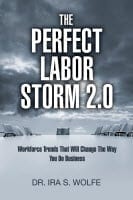Economic tempest brews with too few skilled workers, unfilled jobs, stranded employers.
Sunday News
November 26, 2000
By Gail Rippey and
Judy A. Strausbaugh
Sunday News Staff Writers
A Lancaster County Restaurateur has turned to Central America in an effort to fill job openings.
 Thomas E. Stauss Inc., owner of Miller’s Smorgasbord and of Plain & Fancy Farm & Dining Room, has hired eight Costa Ricans to fill seasonal jobs that go begging for help during the height of the local tourist season.
Thomas E. Stauss Inc., owner of Miller’s Smorgasbord and of Plain & Fancy Farm & Dining Room, has hired eight Costa Ricans to fill seasonal jobs that go begging for help during the height of the local tourist season.
Filling the service-oriented jobs is especially tough given the local labor shortage. Meanwhile, Costa Rica faces a high rate of joblessness.
“I saw opportunity and no people on one hand, and people and no opportunity on the other,” said Thomas Yatsko, who worked for the restaurant company for 20 years as a manager.
Yatsko’s brainstorm is an example of the creativity Lancaster County employers have had to exercise to deal with the labor shortage.
While 2.3 percent unemployment and a U.S. economy that continues to expand, it doesn’t look like the county’s shallow labor pool is going to fill up anytime soon.
With its labor situation, Lancaster County is set squarely in the path of what one employment exert calls “the perfect storm.”
Like the weather patterns that set the stage for a natural disaster, the county’s economic base is poised precariously on the edge of turmoil.
That is if certain forces are allowed to prevail, said Dr. Ira Wolfe, president of Success Performance Solutions, and one of the main suppliers of current workforces statistics to Lancaster County businesses.
Those forces include:
- A rapidly expanding economy. The new jobs are service and technology-oriented, far from the traditional manufacturing base on which Lancaster County has long thrived.
- A community at full employment.
- Changing demographics, including a lower birthrate and a graying workforce with fewer young people to replace those who retire.
- An older population is living longer and demanding more services, especially in healthcare.
- A wide gap between education and business. Those with a low level of education get stuck in dead-end jobs. Meanwhile, employers’ growth is stunted because they can’t find enough skilled workers to fill new technical jobs and/or they won’t pay to upgrade employees’ skills.
- A shift in workers’ attitudes toward their employers, particularly those who think nothing of jumping from job to job in search of higher pay, better benefits or a more flexible work schedule.
- Intense global competition, where suppliers and vendors are forced to keep prices low while increasing output but with fewer workers. Those who fail to keep up will lose out.
The bad news is if you think it’s worrisome now, the labor shortage and all its ill effects haven’t really hit Lancaster County yet. “This labor shortage will not blow over,” Wolfe said.
The good news, say job experts, is there is still time to correct the problems and create a workforce that is educated and employable in both old and new economy jobs. Lancaster can allow existing businesses to grow while making room for new businesses to locate here. Employers realize they have a lot of work to do,” said Wolfe, a former dentist.
To that end, the year-old Lancaster County Workforce Investment Board will sponsor a summit Thursday at Liberty Place. The daylong even will bring together business people, educators, and public leaders to discuss the labor issues that threaten the community’s economic growth, and subsequently, its quality of life.
“There is not a singular solution to the coming problems,” cautioned Wolfe, who will present the results of a month-long survey on the attitudes of local workers and employers.
While some local experts say the problems are just beginning, others say many of the solutions are already here.
“We have a lot of good resources in Lancaster County” to train, recruit and educate workers, said Beverly Wise Hill, chair-woman of the Workforce Investment Board.
